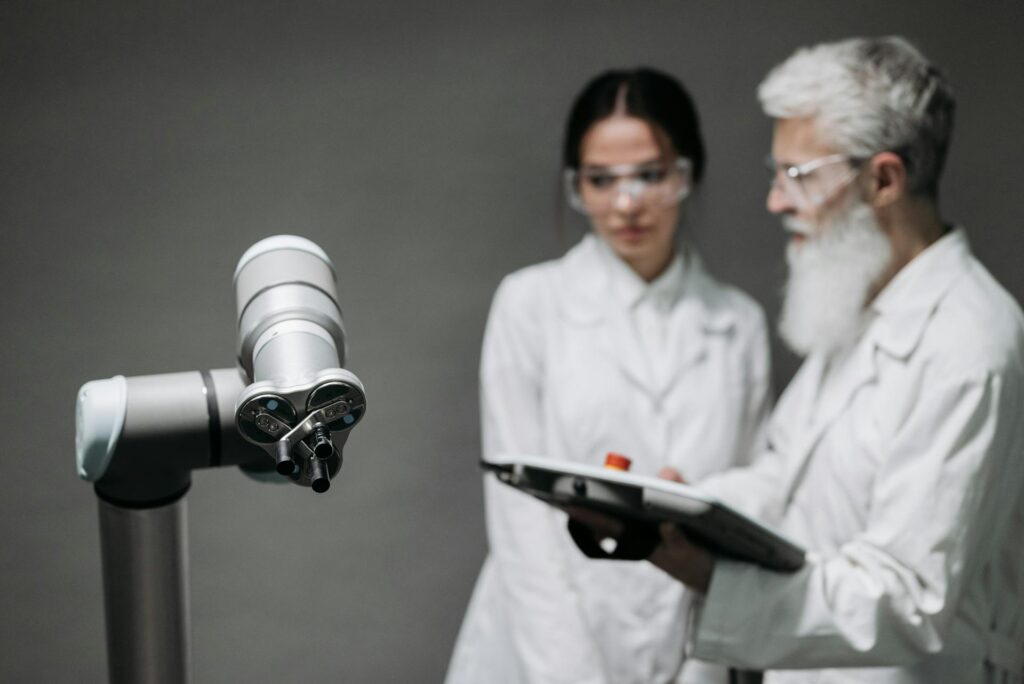The number of machine learning- and AI-powered medical devices approved by the U.S. Food and Drug Administration (FDA) has increased significantly in recent years. In 2024, the FDA approved nearly 1,000 AI medical devices compared to just 221 in 2023.
The increase could transform the healthcare industry by giving practitioners access to more diagnostics and treatment options that lead to better patient outcomes.
At the same time, there are concerns about whether the FDA has approved some medical devices too quickly. Some healthcare organizations are also worried that they don’t have enough specialists to help them navigate the rapidly evolving landscape.
Key Takeaways from the FDA’s Updated AI/ML Device List
There are several critical lessons to learn from the FDA’s updated AI/ML device list, but some of the most important takeaways include:
Rapid Growth of AI Medical Devices
Given that the FDA has approved more AI medical devices each year, it makes sense to assume it will continue doing so. After all, MedTech companies are committed to creating more of these devices because they know there’s a growing need for them. The profit potential is enormous.
FDA Is Expanding Its Regulatory Oversight
While some people remain skeptical that the FDA can review and approve AI medical devices so quickly without cutting corners, the federal agency has issued guidance that should give it more regulatory oversight.
In a January 2025 press release, the FDA announced that it wants medical device producers to provide information about each device’s Total Product Life Cycle. This guidance should increase transparency and help the FDA ensure compliance.
Lack of Validation Data
Greater oversight that looks at every stage of an AI medical product’s life cycle is a step in the right direction. Unfortunately, the guidance hasn’t gone into full effect yet.
There’s plenty of concern that the recently approved healthcare devices didn’t provide the data needed for long-term clinical validation.
The Trend Will Impact Hiring Needs in a Competitive Talent Market
The healthcare industry follows strict privacy rules, so MedTech companies building AI medical devices must conform to challenging regulations. This likely means that the technology companies developing products for healthcare will need to shift their hiring needs. At the very least, they will need professionals experienced in AI compliance, validation, and regulatory affairs.
Unfortunately, there’s a very competitive talent market for people with the skills to meet these needs. Experts like AI engineers, regulatory specialists, and commercialization experts are often difficult to locate and hire.
They can also command high salaries. For example, Glassdoor estimates that AI engineers earn $161,000 to $267,000 per year. Those with experience in healthcare regulations might want even more compensation. In such a competitive market, professionals with such niche skills can field offers from several companies, which drives up the cost of hiring them.
Without these people, though, getting AI medical devices approved could become increasingly challenging.
The Hiring Challenges AI-Driven MedTech Companies Face
Yes, MedTech companies face hiring challenges as they search for experienced personnel with the right skills. If you work in HR for a healthcare technology company, you’ll likely encounter issues:
- Bridging the gap between AI and healthcare expertise (these professionals typically have very different backgrounds, so it’s difficult for them to find common ground before launching products).
- Recruiting professionals with regulatory knowledge and AI/ML experience (since these are both niche skills that require a lot of training, very few people have expertise in both areas).
- Finding validation and clinical trial specialists who can ensure trial results meet regulations and know how to communicate that to the FDA.
How MRINetwork Helps Medical Device Companies Stay Competitive
While it’s difficult for medical device companies to find the right employees, collaborating with a company like MRINetwork can make it much easier.
MRINetwork already has access to a pool of top-tier talent with experience in AI-driven medical technologies. We also have expertise in hiring for regulatory, research and development, and commercialization roles.
Furthermore, we continue forging relationships with professionals who can fill niche roles. That means our database of potential hires keeps growing. If we don’t currently have the right person for your open position, our proven recruitment strategies will assist our search and verify that applicants have the required experience.
Staying Ahead of MedTech Competitors
There’s no doubt that AI will shape the future of medical devices and how they benefit patients. Reaching these goals, however, relies on companies finding the right talent. Otherwise, you could lose months of work when the FDA denies your application.
It’s not about filling roles with people who might know how to do their jobs well. It’s about finding experts who can move your AI medical products R&D into the regulated healthcare system.
MRINetwork’s specialized recruiters can help you build teams that succeed in this evolving space. Employers, reach out to our team of recruiters so we can find the right people for your open positions in AI-driven medical devices and healthcare.

Connect with MRINetwork